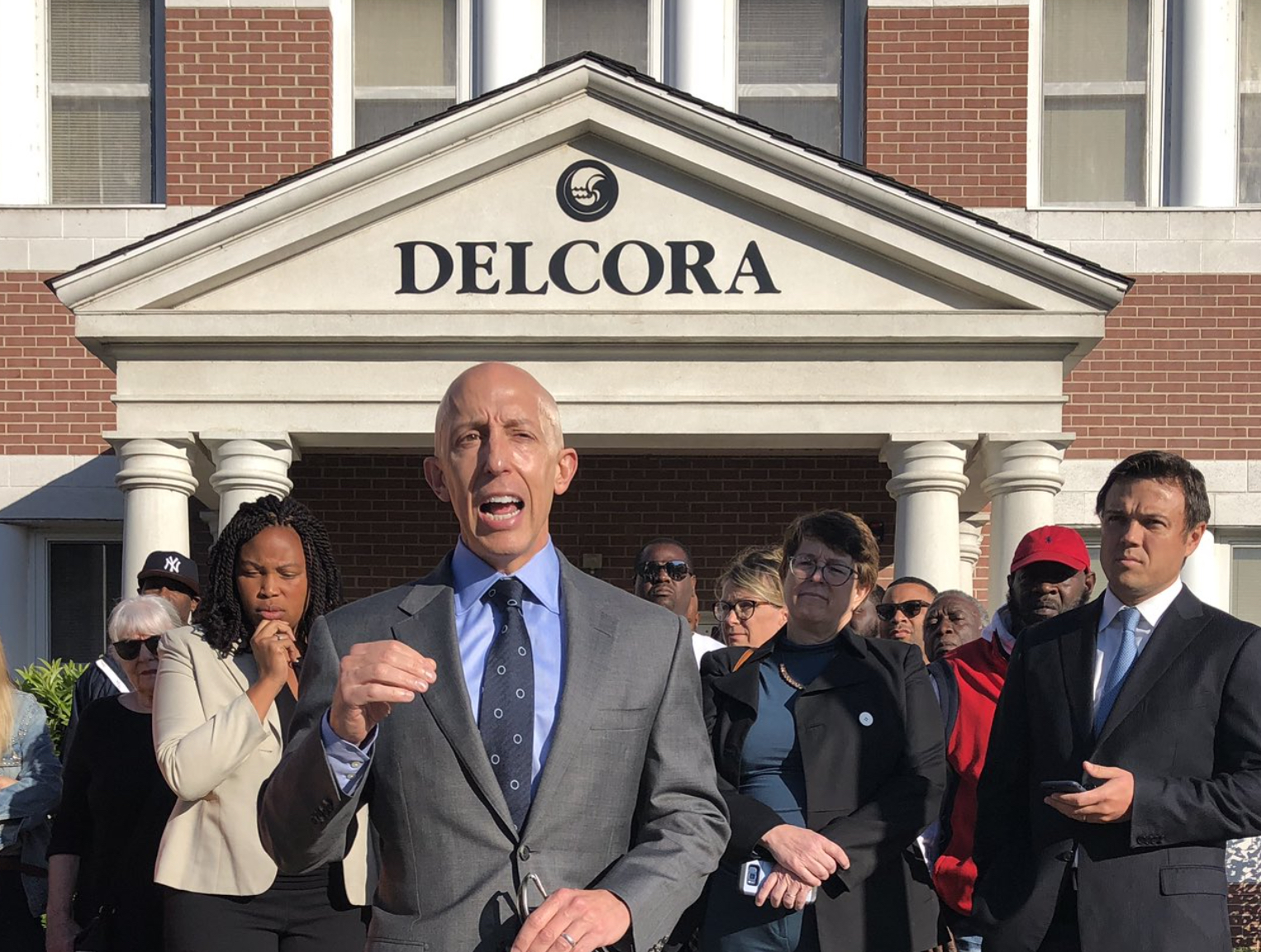Former Sen. Daylin Leach Settles Defamation Suit With The Philadelphia Inquirer

The saying goes, “Never argue with someone who buys ink by the barrel.”
But in this case, former Democratic state Sen. Daylin Leach has prevailed, although his political career is over.
Leach, who represented parts of Montgomery and Delaware Counties, reached settlements with The Philadelphia Inquirer and his “Me Too” accusers. The Inquirer recently ran a large ad above the fold as part of the settlement. Leach told the DVJournal that, under the terms of the settlement, he could not disclose the sum the paper agreed to pay him.
On X, he said, “Today, The Philadelphia Inquirer posted an unprecedented Page B-1, above-the-fold retraction for false stories they wrote about me as part of the resolution of my defamation suit. Justice takes time, but it’s certainly worth it.”
“The Inquirer came at me with this story about this girl from 30 years earlier who was claiming I assaulted her,” said Leach. “It became clear to them the story was not credible.” There were “six or seven wildly different and irreconcilable stories. But I found out later. The Inquirer knew them all.”
Leach had sued the three “Me too” accusers first and previously reached a settlement with them. Allentown area resident Cara Taylor, a convicted perjurer, had told various stories about Leach after Leach, a lawyer, represented her mother in court in the 1990s. The other two women he sued for defamation had supported Taylor and amplified her message on social media and at protests.
Leach used evidence from that suit as fodder in his litigation against The Inquirer. Editors at the newspaper rejected the story about Taylor’s accusations, but a reporter persisted in trying to find a way to publish it, the suit said. The Inquirer ran some 40 stories regarding allegations against Leach beginning in 2017.
While reporters must be truthful, there is some leeway for breaking news about government actions under “the fair reporting privilege,” the suit noted.
According to Leach’s suit against The Inquirer and two journalists, one of the reporters, Angela Couloumbis, allegedly encouraged Taylor to do things that would bring about government actions so that she could report her allegations against Leach under the fair reporting privilege, the suit said.
As part of the first lawsuit against Taylor, her posts to a group of friends in a private Facebook group that they called “Project Puke F***”–their nickname for Leach–were turned over. During a deposition, Taylor said those posts were truthful.
Taylor said, “As soon as I file for a pardon….Angela says it’s a legal document that is public record, and she can use that to report the story” and “There is no way to answer the pardon application questions without involving [Senator] Daylin [Leach]. The who[le] point of me filing that is for Angela’s ability to print the story.”
“And Angela said a public document would get the story published. She has known about [sic] since I did it, and still nothing. She kept pushing me, too, for a copy of my pardon application.”
“F*** the pardon! I was only doing that so Angela would have a public document to publish her story,” Taylor said.
Couloumbis allegedly encouraged Taylor to file a private criminal complaint against Leach. After the lawsuit was filed, Couloumbis denied Leach’s allegations.
But when then Lehigh County District Attorney Jim Martin declined to do anything about the supposed crime, which was past the statute of limitations, Couloumbis recommended Taylor circulate the complaint among state senators, Leach said.
Lawyer Eli Segal, who represented The Inquirer in the Leach case, declined to comment.
Leach said because of The Inquirer’s articles, he faced issues with his colleagues in the Senate. Sen. Katie Muth (D-Montgomery/Chester) was particularly insistent that Leach resign or be removed, even after a report from lawyers Eckert Seamans disproved the allegations. He told some “juvenile” jokes, but he never sexually harassed anyone, the report said.
Senate Minority Leader Jay Costa had asked the law firm to investigate Leach. When the report came out exonerating Leach, he was told they would read it out loud in the Senate caucus room, and the brouhaha would be over. Costa told Leach that he would be reinstated to various committees.
That didn’t happen.
“Sen. Katie Muth was obsessed with me. I don’t know why she was so obsessed, but she was. After the attorney from Eckert Seamans said he found no wrongdoing, she leaps up from her chair in the caucus and says, ‘You’re a f***ing liar.’ And starts screaming. And she starts posting stuff furiously on Twitter with the hashtag’ fake exoneration.’”
And Muth threatened Costa, who was running for reelection, with protests at his office and told him he “better not let this happen,” said Leach.
“So Sen. Costa called me into his office and said, ‘Katie Muth is unhappy you’ve been exonerated.’ And I was like, ‘Well, that’s unfortunate for her.’” Costa told him he would reopen the investigation because Muth wanted him to.
Leach said he would release the report anyway. So Costa called on him to resign. After the second investigation found nothing, Muth “kept filing complaints against me, ethics complaints, they were all dismissed. But she was obsessed with having me expelled from the Senate. She said my mere presence made her uncomfortable, and she wanted me out (even saying she) didn’t care if the allegations weren’t true.”
Neither Muth nor Costa responded to requests for comment.
Many other politicians Leach thought were his friends turned their backs on him. Some later apologized privately, he said.
“Marcel Groen lost his job as chair of the state party because he wouldn’t come out against me,” said Leach. “It was his dream job. Gov. Tom Wolf called him and told him, ‘You’ve got to call for Daylin to resign.’” Groen told the governor he’d looked at the allegations, and they were not credible, so he refused. And, while Wolf could not fire a party chair, he told Groen he no longer had his support, and Groen, who was “old school,” stepped down, Leach said.
In 2020, Amanda Cappelletti defeated Leach in the primary and won the general election. Leach, who had begun a run for Congress when the scandal ensued, may start a supply chain business for the cannabis industry. He authored the Pennsylvania law legalizing medical marijuana.
“I can’t be a lobbyist,” said Leach. “No one’s going to hire me to be a lobbyist. The only way I’ll ever work again is if I start my own company, which I’m trying to do.”






